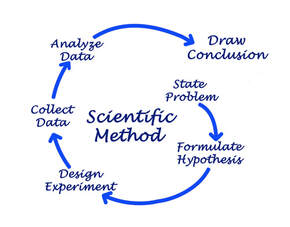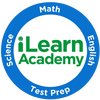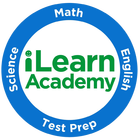|
From Application to Acceptance: The Journey of College Admissions, Part Two
[This is part two of a two-part series on college applications.] In the first part of this series, we discussed how you can help your student pick which colleges or universities to apply to. By now your student has considered carefully their scope of possibilities based on their grades, test scores, and field of study. They have decided between public and private universities, two- and four-year colleges, and liberal arts versus research schools. (Or they have decided to apply to a mixed group of these.) Finally, they have selected a range of about ten to twelve schools including safe options, target schools, and dream universities, and stand ready to move on to the next stage. Part Two: Actually Apply for College While the process of applying may resemble a Byzantine, even Kafkaesque, ordeal from time to time, one should resist the urge to feel overwhelmed by remembering that these school want – nay, need – students in order to exist. Your student can and will navigate these systems. If they struggle to complete a task related to a particular institution, do not hesitate to call the school’s admissions or bursar’s office for guidance, or seek out assistance from friends who may have completed this process recently. You can also contact us here at iLearn Academy for advice. You need not go through this process alone. Step 3: Gather all the required information. Armed with their list of target schools, your student should begin to gather the documents necessary. Individual schools’ application systems (as well as the Common Application) will give specific instructions, but here we highlight several common requirements.
Not all colleges will interview, and even those that do may only interview for special programs or scholarships. Find out early on if your student will need to interview for your selected colleges. If they find themselves scheduled for a meeting, have them consider these tips on how to successfully navigate these conversations.
https://www.princetonreview.com/college-advice/college-interview-tips https://bigfuture.collegeboard.org/get-in/interviews/college-interviews-practice-questions-and-strategies Step 5: Scholarships Scholarships not only help pay for tuition or living expenses, but they also reward students for effort and focus, providing motivation and a sense of accomplishment and belonging at college. Most schools offer many scholarship opportunities and the more your students applies for the more they can potentially earn. Research scholarship in two places:
0 Comments
However, the logic behind these tests is not arbitrary or capricious. The questions and answers on the PSAT, SAT, ACT, and other standardized tests favor conventions of written communication that objectively promote understanding, empathy, fair-mindedness, and discretion, characteristics sorely missing in the depths of many social media chatrooms, political cliques, and the anxiety-ridden hearts of people confused and afraid in our increasingly uncontrollable and alienating modern world. As we watch in sorrow as these fears and suspicions ignite into the violent destruction of lives, property, and democratic norms on the nightly news, I am more convinced than ever of the necessity of basic composition, logic, and reading comprehension skills covered in our nation’s standardized tests.  1. Tone. Most of the passages in the English sections of the ACT and Writing sections of the SAT favor measured language, avoiding extremism or exaggeration. I tell my students often, “If you see answers with words like ‘all’, ‘always’, ‘never’, ‘only’, ‘most’, ‘best’, or ‘worst’, you have a pretty good tip that those are wrong answer choices.” Very few things in life are absolute. (Almost) nothing is a perfect example of anything. This does not mean that one should not exhibit passion when speaking or writing. Most of the grammar test passages include varied vocabulary and demonstrate the writer’s deep interest in their subject. However, adopting a moderate tone, with allowance for exceptions and avoidance of inflammatory rhetoric, will not only improve a student’s test scores and college application essays, but it will also set them apart from a toxic political environment where many choose bombastic volume over empathy and reason and the immediate gratification of reaction over the hard, prolonged work of promoting justice.  2. The Scientific Method. I regularly advise my students – especially those fearful of the hard sciences – that the ACT Science passage and scientific passages in the PSAT and SAT mostly work as glorified reading comprehension problems. If one reads carefully for key terms, analyses graphs with care, and methodically applies logic, one can achieve a remarkably high score even without a firm grasp of the basic content knowledge of biology, chemistry, or physics (although that certainly helps!) On the first day of ACT Science instruction, I teach them the basics of the scientific method and experiment design, particularly the idea of variables, constants, and controls. By learning this, they achieve some grasp of what counts as proof and how we can actually know something. They understand the importance of repeatability, controls, and peer review. Naturally, this will serve them well going into their Freshman and Sophomore college science classes, particularly those with lab requirements. But such principles will also protect them from the junk science and poorly-sourced rumors that flood social media from all directions on a daily basis. Charlatans and alarmists sadly populate our world, seeking whom they may devour, and by teaching your student the difference between fact, fiction, opinion, and nonsense you give them the best defense possible in these troubled times – the defense of sound, stable mental processing.  3. Certainty versus Possibility. One of the thorniest types of reading problem these tests present offers an almost-correct answer choice that is just slightly too specific to be supported by the evidence provided, while the correct answer is supported by the evidence but feels too hedged or careful for a right answer, so students rarely pick it. I have to convince them that just because we know one thing is true does not automatically mean we have proven similar or related things. By studying for these tests, students learn what many adults have forgotten: we speak truly by making careful and measured – even if often less satisfying – statements rather than asserting absolute and overly-specific claims. The latter category of declaration often feels more comforting, as dogmatism offers the illusion of certainty, a tempting balm amidst the cacophony of complex discourse we face every time we check our phones, open an internet browser, or turn on the television. We must teach our students – and always remember ourselves – that true confidence comes from deliberate study and a willingness to be proven wrong if the evidence does so.  4. Empathy without Gullibility. In the reading comprehension sections, most of the informative essays use moderate tone and measured language, but some of the persuasive essays, particularly older ones, require students to analyze the negative rhetoric and charged vocabulary of people most modern readers would strongly disagree with. Sometimes these tests feature selections from 19th century writers or speakers who defended chattel slavery or opposed recognizing women’s right to vote. The test writers do not, of course, present these passages as legitimate moral views. Rather, they test whether students can understand an argument and the logic behind it (including logical flaws) without adopting the argument itself. Students, indeed everyone, must develop the capacity to understand without agreeing, empathize without conceding, and listen without blindly following. In so doing, they will build intellectual and moral armor against regressive and authoritarian ideology without discounting the humanity, however flawed, of those caught up in the traps of paranoia or hate. During my earliest years of tutoring, much closer to the dates of my own standardized tests, I regarded standardized tests merely as a necessary evil. They seemed rarefied and almost arbitrary, useful only by gaming the process to get a score that would allow entrance – little better than a magic word – into college where the “real learning” would take place. I now see how profoundly wrong I was. I use the skills of measured language, moderate claims, and the scientific approach to knowledge every day. I also recognize the level of suffering caused by those who have forgotten – or perhaps never learned – those skills, who are led or lead others astray both morally and intellectually by choosing extremism over discretion, ideology over empathy, and false certainty over the real confidence that comes from logic, patience, and care.
|
Categories |
We make a personal commitment to ensure each student is well-prepared for the academic school year.
Dedicated to helping your student succeed.
©
iLearn Academy 2019



 RSS Feed
RSS Feed
